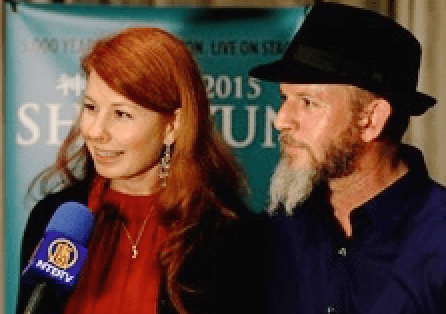PORTLAND—Some in the news business are saying that the emergence of new technologies, in particular the Internet, and the financial crisis, have caused a dramatic change in the media environment.
Michael Mosettig, a senior producer for foreign affairs and defense at PBS “NewsHour,” is one of them. During comments made at a May 19 World Affairs Council event in Portland, Oregon, Mosettig said that when the Internet came about, newspapers made “a nearly fatal decision that they would put their products—news that cost money to produce on the Internet and give it away for free.”
“They are still paying for it,” he added.
Mosettig won two Emmys for his coverage of the Middle East in 1997 and Pakistan in 2007. He has also been a producer for NBC News in Washington, New York, Cairo, and London, and a correspondent for UPI in London and Brussels. His articles on media and international relations were published in Foreign Policy, Channels, and the SAIS Review.
Mosettig says that what he calls, “the Internet generation” thinks that it gets news from the Internet for free but they don’t know they still get news from newspapers that are paying for reporters, editors, et cetera.
As a long-term insider in the journalism business, Mosettig considers that the Internet was beneficial for consumers of information, but disastrous for the providers. He believes that while newspapers are trying to be factually correct with fact checking, editing, and other old standards, it is hard to tell whether the Internet news is authentic. And what’s worse—he says the standards are tied to the profits.
“The financial model that we sustained ourselves on for such a long time is crushing down. And the first casualty of a melting financial situation is often the overseas coverage.”
Mosettig says that media such as the Baltimore Sun, the Boston Globe, Newsweek, the New York Times, and even news agencies such as Fox and CBS shed their overseas coverage. According to Mosettig, CBS now has only two overseas bureaus trying to cover the entire world.
“On the fingers of barely two hands you can count the number of American news organizations that maintained their journalistic and financial commitment to overseas coverage,” said Mosettig.
Reiterating the necessity of coming back to serious traditional journalism, Mossetig said history will truly judge how things changed.
“When the historians of the future look back and try to understand why the second consecutive generation was born in violence, I wonder who among them will deal with this particular question: Where is the institution that in the past served the role of educator, explainer, translator, and by that I am talking about the American press.”
Michael Mosettig, a senior producer for foreign affairs and defense at PBS “NewsHour,” is one of them. During comments made at a May 19 World Affairs Council event in Portland, Oregon, Mosettig said that when the Internet came about, newspapers made “a nearly fatal decision that they would put their products—news that cost money to produce on the Internet and give it away for free.”
“They are still paying for it,” he added.
Mosettig won two Emmys for his coverage of the Middle East in 1997 and Pakistan in 2007. He has also been a producer for NBC News in Washington, New York, Cairo, and London, and a correspondent for UPI in London and Brussels. His articles on media and international relations were published in Foreign Policy, Channels, and the SAIS Review.
Mosettig says that what he calls, “the Internet generation” thinks that it gets news from the Internet for free but they don’t know they still get news from newspapers that are paying for reporters, editors, et cetera.
As a long-term insider in the journalism business, Mosettig considers that the Internet was beneficial for consumers of information, but disastrous for the providers. He believes that while newspapers are trying to be factually correct with fact checking, editing, and other old standards, it is hard to tell whether the Internet news is authentic. And what’s worse—he says the standards are tied to the profits.
“The financial model that we sustained ourselves on for such a long time is crushing down. And the first casualty of a melting financial situation is often the overseas coverage.”
Mosettig says that media such as the Baltimore Sun, the Boston Globe, Newsweek, the New York Times, and even news agencies such as Fox and CBS shed their overseas coverage. According to Mosettig, CBS now has only two overseas bureaus trying to cover the entire world.
“On the fingers of barely two hands you can count the number of American news organizations that maintained their journalistic and financial commitment to overseas coverage,” said Mosettig.
Reiterating the necessity of coming back to serious traditional journalism, Mossetig said history will truly judge how things changed.
“When the historians of the future look back and try to understand why the second consecutive generation was born in violence, I wonder who among them will deal with this particular question: Where is the institution that in the past served the role of educator, explainer, translator, and by that I am talking about the American press.”






